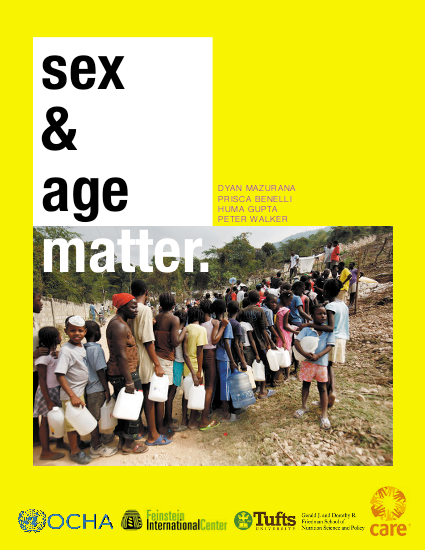
Good data aid decision making and programming, both crucial to humanitarian action. But if the data are not specific about the impact of work on different groups of people – women, girls, boys, men, older people, or disabled people – it is difficult to know if the specific needs of these people have been met. This study shows that the humanitarian community has not invested enough in collecting and using sex- and age-disaggregated data to inform programming. We do not know the differing needs of people affected by emergencies, and so we don’t know if we have met them. This can put the lives and livelihoods of different groups of people at risk.
This report is intended for policy makers and senior operational actors, both within the Unit- ed Nations and INGOs, and in particular Humanitarian Coordinators, Heads of Offices and Cluster leads. This report is also intended for donors that fund humanitarian response to nat- ural disasters and situations of armed conflict.